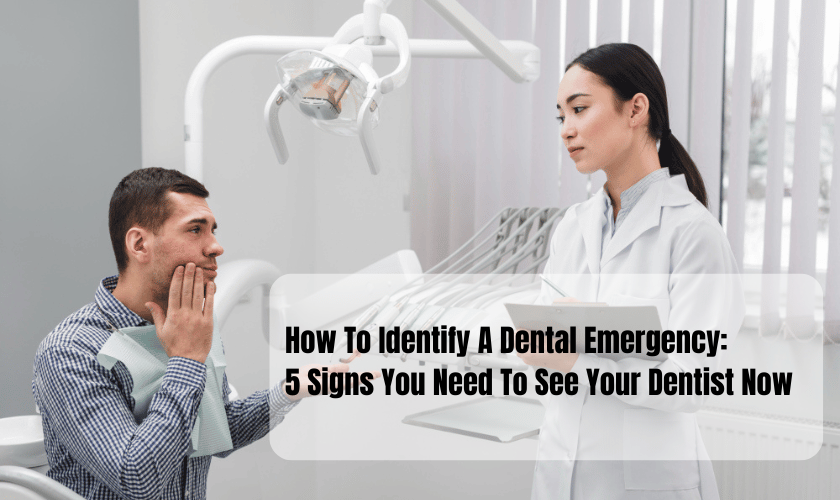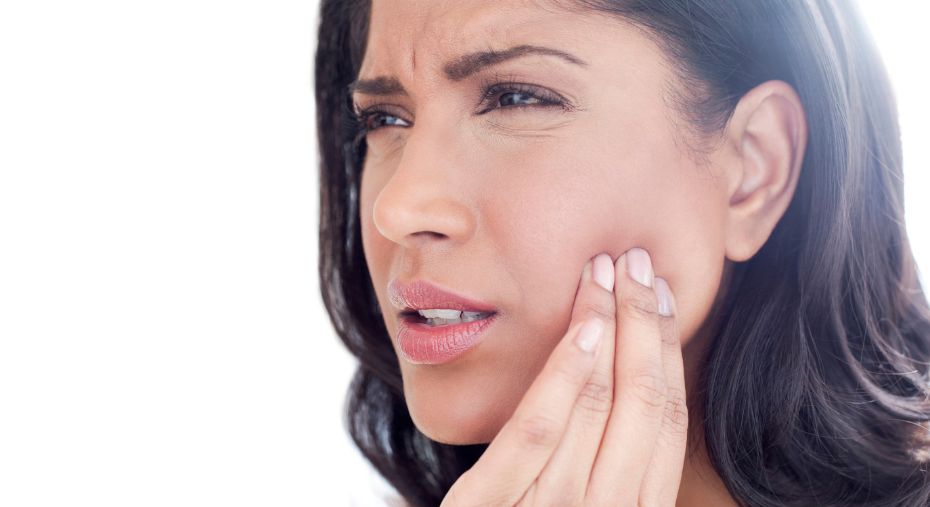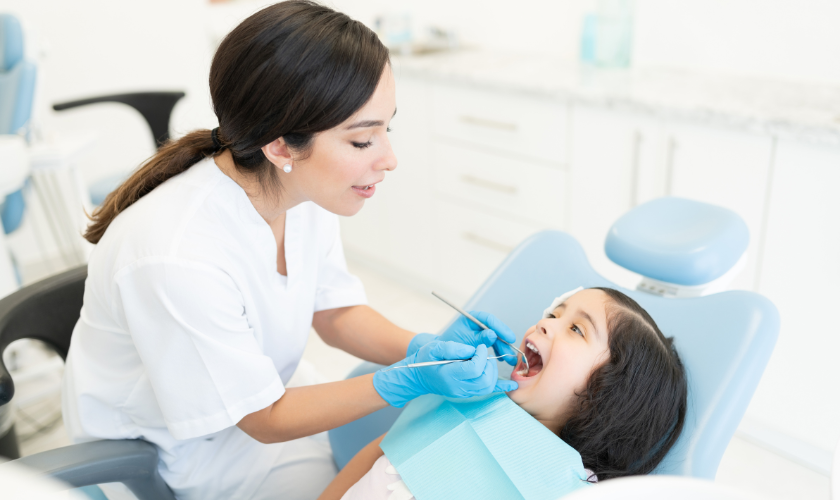Are you experiencing a dental emergency? Don’t panic, because help is just around the corner! When toothaches strike or accidents happen, it’s essential to have an emergency dentist on your side. These dental superheroes specialize in providing immediate care when you need it most. But how do you choose the right one for your needs?
We’ll explore important questions to ask before selecting an emergency dentist. Plus, we’ll discuss why you may need their services and what to expect during your first visit. So buckle up and get ready to face any dental crisis head-on!
What is an Emergency Dentist?
When it comes to dental emergencies, time is of the essence. An emergency dentist is a dental professional who specializes in providing immediate care for urgent dental issues outside of regular office hours. These dedicated practitioners are available to handle situations like severe toothaches, knocked-out teeth, broken or chipped teeth, and other oral injuries that require immediate attention.
Unlike traditional dentists who typically operate on a set schedule, emergency dentists understand that accidents and pain can strike at any moment. They are equipped with the knowledge and expertise to address these urgent matters promptly. Whether you’re dealing with excruciating tooth pain or have suffered an injury to your mouth during a sports activity, an emergency dentist Hugo will be there to assess your situation and provide appropriate treatment.
Emergency dentists often have flexible hours and may offer after-hours appointments or even 24/7 availability. This means that you won’t have to endure sleepless nights or suffer through unbearable pain until regular office hours resume.
Having an emergency dentist on call can bring peace of mind knowing that help is just a phone call away when you need it most. So whether it’s a sudden onset of severe toothache or a traumatic oral injury, don’t hesitate to reach out to your trusted emergency dentist for prompt assistance.
Important Questions to Ask Before Choosing an Emergency Dentist
When it comes to choosing an emergency dentist, asking the right questions is crucial. Here are some important inquiries you should make before making your decision:
1. Experience: It’s essential to ask whether the dentist has experience in treating dental emergencies. Dealing with urgent dental issues requires specific skills and knowledge that not all dentists possess.
2. Patient testimonials: Inquire if there are any previous patients who would be willing to share their experiences with you. Hearing firsthand accounts can give you valuable insight into the dentist’s quality of care and professionalism.
3. Emergency services provided: Find out what types of emergency services the dentist offers. Some may only handle basic procedures, while others can address more complex situations like severe toothaches or broken teeth.
4. Response time: Ask how quickly the dentist can respond to a dental emergency. Time is of utmost importance when dealing with urgent dental matters, so knowing their availability and response time is vital.
5. Safety protocols: Ensure that the dentist follows proper safety protocols during emergencies, especially in light of recent events such as COVID-19. Inquire about their infection control measures and how they prioritize patient safety.
By asking these questions, you can gather relevant information that will help you make an informed decision when selecting an emergency dentist for your needs
Is the dentist experienced in treating emergency cases?
When it comes to choosing an emergency dentist, one of the most important questions you should ask is whether or not they have experience in treating emergency cases. Dealing with a dental emergency can be a stressful and urgent situation, so it’s crucial to find a dentist who knows how to handle these types of situations effectively.
An experienced emergency dentist will have the knowledge and skills necessary to quickly assess your condition and provide appropriate treatment. They will be familiar with common dental emergencies such as severe toothaches, broken teeth, knocked-out teeth, and more. This expertise allows them to make quick decisions and take immediate action to alleviate pain and prevent further damage.
To determine if a dentist is experienced in treating emergencies, you can inquire about their background, training, and any specialized certifications they may hold. It’s also helpful to ask about specific cases they have handled in the past. A reputable emergency dentist will be open about their experience and eager to share success stories from previous patients.
Remember that when it comes to dental emergencies, time is of the essence. You want an experienced dentist who can respond promptly when you need them most. Inquire about their availability for same-day appointments or after-hours care.
Furthermore, finding out what type of emergency services the dentist provides is essential. Some dentists may only offer basic treatments like extractions or temporary fixes until regular office hours resume. On the other hand, an experienced emergency dentist may offer a wide range of services including root canal therapy, orthodontic repairs, gum disease treatment – whatever your particular situation requires.
In conclusion (remember not using concluding words!), choosing an experienced emergency dentist is crucial for receiving prompt and effective care during dental emergencies. By asking the right questions regarding their experience in handling emergencies before making your decision,
Are there other patients I can talk to?
When it comes to choosing an emergency dentist, it’s important to gather as much information as possible before making a decision. One question you should definitely ask is if there are other patients you can talk to. This can give you valuable insights into the dentist’s expertise and quality of care.
Talking to other patients who have had emergency dental treatments with the dentist allows you to hear firsthand about their experiences. You can ask them about the level of professionalism, friendliness of the staff, and overall satisfaction with the treatment received. Hearing from others who have been in similar situations can help alleviate any concerns or anxieties you may have.
By speaking with other patients, you can also gain insight into how quickly emergencies were addressed and resolved. Finding out if they felt comfortable during their visit and if they experienced any pain or discomfort afterwards will give you a solid understanding of what to expect.
Keep in mind that each patient’s experience may vary, but talking to multiple individuals will allow for a more well-rounded perspective. If a dentist hesitates or refuses your request to speak with previous patients, it could be a red flag that they are not confident in their services or patient satisfaction levels.
Having conversations with past patients helps ensure that your emergency dental needs will be met by a qualified professional who prioritizes patient care and satisfaction. So don’t hesitate to ask if there are other patients available for you to connect with before making your final decision!
What type of emergency services does the dentist provide?
When it comes to choosing an emergency dentist, knowing what type of emergency services they provide is crucial. You want to ensure that the dentist you choose is equipped to handle a wide range of dental emergencies.
1. Do they provide same-day appointments for emergencies? It’s essential to find out if the dentist can accommodate urgent cases promptly.
2. Are they experienced in handling common dental emergencies such as toothaches, broken teeth, or lost fillings? A dentist with experience in treating these types of emergencies will be better prepared to address your specific needs.
3. Can they perform procedures like root canals or extractions on an emergency basis? Knowing whether the dentist has the expertise and equipment necessary for more complex treatments during an emergency situation is crucial.
4. Do they offer after-hours emergency care? Dental emergencies don’t always happen during regular office hours, so it’s important to find out if the dentist provides 24/7 availability or has arrangements for after-hours care.
5. What pain management options do they offer? Dental emergencies often come with intense pain, so finding a dentist who can effectively manage and alleviate your discomfort should be a priority.
By asking these questions and getting clear answers from potential emergency dentists, you’ll have a better understanding of their capabilities when it comes to handling different types of dental emergencies. This knowledge will help you make an informed decision about which practitioner is best suited for your needs.
How quickly can the dentist respond to an emergency?
How quickly can the dentist respond to an emergency? When it comes to dental emergencies, time is of the essence. You want a dentist who can provide prompt and reliable care when you need it most. So, when choosing an emergency dentist, it’s important to inquire about their response time.
Ideally, you’ll want a dentist who can see you as soon as possible in case of an emergency. Ask the dentist about their availability and how quickly they can accommodate urgent cases. Some dentists have designated slots in their schedule specifically for emergencies.
Another aspect to consider is whether the dentist offers after-hours or weekend appointments for emergencies. Dental issues don’t always happen during regular office hours, so having access to care outside of those times can be crucial.
In addition to asking about response time, find out how the dentist handles emergencies that occur outside of office hours. Do they have an on-call service or referral system in place? It’s essential to know that there will be someone available even if your emergency happens at night or on a weekend.
Remember, every minute counts when dealing with a dental emergency like severe tooth pain or facial swelling. By asking these questions upfront, you can ensure that your chosen emergency dentist will be able to respond promptly and efficiently whenever you need them most.
What safety protocols are in place?
Safety protocols are an important consideration when choosing an emergency dentist. You want to ensure that the dental practice follows strict guidelines to protect both patients and staff. So, what safety protocols should you be asking about?
Find out if the emergency dentist adheres to infection control practices recommended by reputable organizations such as the CDC or ADA. These practices include proper sterilization of instruments and equipment, regular disinfection of surfaces, and use of protective barriers like gloves and masks.
Additionally, inquire about their approach to patient safety during emergencies. Do they have a designated emergency area equipped with necessary medical supplies? Are there trained staff members who can handle potentially life-threatening situations? It’s crucial to know how well-prepared they are in case of any unexpected complications.
Another aspect to consider is their compliance with privacy regulations. Ask if they follow HIPAA guidelines for protecting patient information. Your personal health data should be kept confidential and securely stored.
Inquire about their response plan in case of a fire or natural disaster. Knowing that the dental practice has evacuation plans and safety measures in place can provide peace of mind.
Remember, your safety should always be a top priority when seeking emergency dental care. Don’t hesitate to ask these questions so you can make an informed decision for yourself or your loved ones
Why You May Need to See an Emergency Dentist
Accidents happen when you least expect them, and dental emergencies are no exception. While regular dental check-ups and preventive care can help maintain good oral health, there are situations that require immediate attention from an emergency dentist.
One common reason to see an emergency dentist is severe tooth pain. This could be caused by a variety of issues such as tooth decay, infection, or even a cracked tooth. If the pain is unbearable and affecting your daily activities, seeking prompt treatment is essential.
Another reason for visiting an emergency dentist is if you experience sudden swelling in your mouth or face. Swelling could indicate an abscess or infection that requires immediate attention to prevent further complications.
Injuries resulting in loose teeth or knocked-out teeth also warrant a visit to the emergency dentist. Time is crucial in these cases as quick action increases the chances of saving the affected tooth.
Furthermore, unexpected incidents like broken braces wires or lost dental fillings may require urgent care from an emergency dentist to alleviate discomfort and prevent further damage.
Remember, delaying treatment for any dental emergency can lead to more extensive problems down the line. It’s best not to ignore any signs of distress and seek professional help promptly.
Stay tuned for our next blog section on what you can expect during your first visit with an emergency dentist!
What to Expect During Your First Visit
When you visit an emergency dentist for the first time, it’s natural to feel a bit anxious. Rest assured that your dentist is trained to handle emergencies and will do everything possible to put you at ease.
During your initial appointment, the dentist will begin by asking about your dental history and any symptoms or concerns you may have. It’s important to be honest and provide as much detail as possible so that the dentist can accurately diagnose and treat your condition.
Next, the dentist will conduct a thorough examination of your mouth, teeth, and gums. This may involve taking X-rays or other diagnostic tests to get a better understanding of what’s going on in your mouth.
Once the examination is complete, the dentist will discuss their findings with you and recommend a treatment plan. They will explain each step of the process and answer any questions you may have.
If immediate treatment is required, such as tooth extraction or filling cavities, the dentist may perform these procedures during your first visit. In other cases, they may schedule a follow-up appointment for further treatment or refer you to another specialist if necessary.
Remember, every dental emergency is unique, so it’s essential to trust in your emergency dentist’s expertise throughout this process. By following their guidance and maintaining regular oral hygiene habits after treatment, you can ensure optimal dental health moving forward!
Insurance Coverage for Emergency Dental Care
When it comes to unexpected dental emergencies, the last thing you want to worry about is the cost. That’s why it’s important to understand your insurance coverage for emergency dental care. Before an emergency strikes, take some time to review your policy and ask these questions:
1. Does my insurance plan cover emergency dental services? Not all plans include coverage for emergency procedures, so it’s crucial to know what your policy includes.
2. Are there any limitations or restrictions on emergency dental coverage? Some policies may have specific criteria that must be met in order for the treatment to be covered. Make sure you’re aware of any limitations or restrictions that may apply.
3. What percentage of the cost will be covered by insurance? Understanding how much your insurance will pay can help you budget and plan ahead.
4. Is there a deductible or copayment required for emergency dental services? Find out if there are any additional costs you’ll need to cover out-of-pocket before your insurance kicks in.
5. Do I need pre-authorization from my insurance company before seeking emergency treatment? Some plans require pre-authorization, so make sure you know the proper steps to take in case of an emergency.
Remember, each insurance plan is different, so don’t assume anything about your coverage without checking with your provider first!
Stay tuned! In our next blog section, we’ll provide tips on preparing for emergencies and maintaining good oral health!
Preparing for Emergencies and Maintaining Good Oral Health
Accidents happen, and dental emergencies can occur when you least expect them. To be prepared for such situations, it’s important to take proactive steps in maintaining good oral health.
Practicing proper oral hygiene is essential. Brushing your teeth twice a day with fluoride toothpaste and flossing daily can help prevent common dental issues such as cavities and gum disease. Additionally, regular visits to your dentist for cleanings and check-ups are vital in detecting any potential problems early on.
Another aspect of being prepared involves having basic knowledge of first aid techniques for dental emergencies. Understanding how to handle situations like a knocked-out tooth or severe toothache can make a significant difference in saving the tooth or relieving pain until professional help is available.
Furthermore, it’s crucial to have the contact information of an emergency dentist readily accessible. Research and choose an emergency dentist who offers prompt services during urgent situations. Make sure they have experience handling emergencies and are equipped with the necessary tools and technology.
In addition to these steps, consider investing in dental insurance that covers emergency treatments. It provides financial security during unexpected dental crises while ensuring you receive timely care without worrying about excessive costs.
Remember that prevention is key! Avoid chewing hard objects or using your teeth as tools, as this can lead to fractures or other injuries requiring immediate attention from an emergency dentist.
By taking these proactive measures towards maintaining good oral health and preparing for emergencies, you’ll be better equipped to handle unexpected dental challenges if they arise.
In times of dental emergencies, having a reliable and experienced emergency dentist is crucial. By asking the right questions before choosing an emergency dentist, you can ensure that you receive the best possible care when you need it most.
Remember to inquire about the dentist’s experience in handling emergency cases. This will give you peace of mind knowing that they have the necessary skills and knowledge to address your specific needs. Additionally, speaking with other patients who have received emergency dental treatment from the same dentist can provide valuable insights into their level of expertise and patient satisfaction.
It is also important to find out what types of emergency services are offered by the dentist. Some dentists may only handle minor emergencies, while others are equipped to handle more complex cases. Understanding their capabilities will help you determine if they are prepared to meet your specific needs.
Response time during emergencies is critical, so be sure to ask how quickly the dentist can attend to your situation. A prompt response ensures timely treatment and minimizes potential complications.
Another vital question concerns safety protocols in place at the dental practice. Inquire about measures taken to prevent infection transmission and protect both patients and staff during emergencies. A reputable emergency dentist should prioritize safety above all else.
While we hope that you never require urgent dental care, accidents happen unexpectedly. Having knowledge of insurance coverage for emergency dental care will save unnecessary stress during these situations. Be aware of any limitations or exclusions in your policy regarding such treatments so that there are no surprises when seeking immediate assistance.
Remember that prevention is always better than cure! Maintaining good oral health through regular check-ups and practicing proper hygiene significantly reduces the chances of encountering a dental emergency in the first place.
By asking these essential questions about an emergency dentist upfront, you can make an informed decision when selecting one for yourself or your family members in case of unexpected oral health issues arise.




